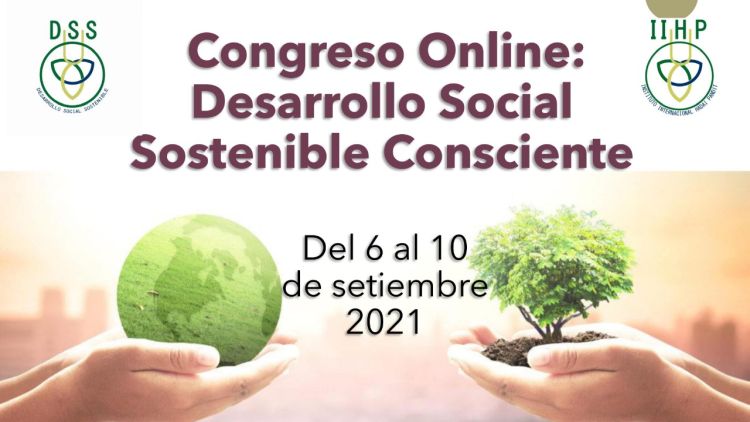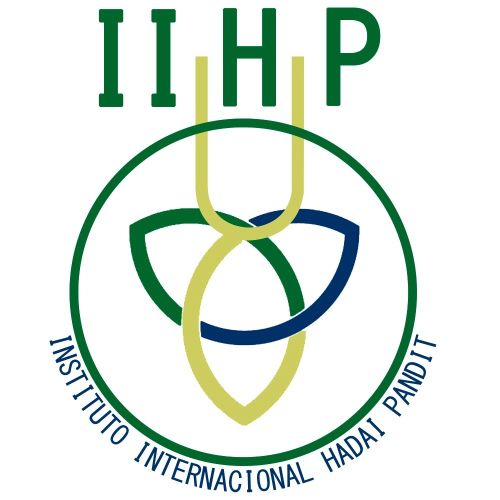Argentina’s Hadai Pandit Institute Holds Congress on Conscious Sustainable Development
By Madhava Smullen | Сен 09, 2021

Over 30 speakers are explaining sustainable development from a Krishna conscious point of view at the Congress on Conscious Sustainable Development, which is running from September 6th to 10th and is entirely in Spanish. Viewers from all over South America are signing up at https://hadaipandit.org/ and watching at https://www.facebook.com/congresodssc.
The online event is the first organized by the Hadai Pandit International Institute, an upcoming online school which will provide Waldorf-style education along with principles from the Bhakti-Yoga tradition. The Institute is set to launch next year with elementary school, and aims to eventually provide education all the way up to college level.
Around 100 registered audience members are attending every day, with many more watching on Facebook. The majority of registrants are professionals in various fields who are interested in learning about the Bhakti perspective on sustainable development; many ISKCON devotees are also in attendance.
Talks start at 10:00am every day and run until 5 or 6pm in the afternoon, given by a variety of devotee professionals, experts and academics in different fields – many of them ISKCON gurus.
“Each day is separated into different topics,” explains co-organizer Arjuna Sakha Das. “We’re talking about psychology, yoga, health, education in general, sex education, housing, tourism – everything that has to do with human activities or human behavior. We’re discussing sustainable development of a country or civilization, but always adding Bhakti Yoga philosophy.”
The main goal of the Congress, through all the talks, is to present the philosophical principle of Ishavasyam – everything belongs to God – which appears in the first verse of Sri Isopanishad and is quoted many times in the Srimad Bhagavatam.
“We want to explain this principle from different viewpoints, always linking back to how this idea that everything belongs to God is the only way to have sustainable development in our civilization,” Arjuna Sakha says.

The logo for the Hadai Pandit International Institute
Different speakers are doing this in different ways. “For example, Hridayananda Das Goswami is discussing “evolution in education” and how education today has evolved to a more materialistic standing,” Arjuna Sakha explains. “He’s asking the questions, ‘Are we getting better education today or not?’ And ‘Can we have a better education by adding Krishna conscious or spiritual principles to our schools?’”
Meanwhile Hanumatpresaka Swami is explaining the basics of Varnashrama Dharma, and giving his viewpoint on how it can be implemented in today’s society. Krishna Kshetra Swami and Bhakti Sundar Goswami are both elaborating on the topic of sustainable development in relationship with the sacred – how religion, spirituality, and God consciousness are the fundamentals of sustainable development.
On Thursday, Purushatraya Swami is speaking about recycling and energy use from his many years of experience working on farm communities in Brazil. And on Friday, Bhaktimarga Swami is talking about sustainable development from the standpoint of the arts – how drama, music, and cinema can help educate people in sustainable development.
Further, Chaitanya Lila Devi Dasi and Govinda Lila Devi Dasi are talking about yoga and sustainable development. Raivata Das, who is developing a rural project in Mayapur, is talking about his experiences living in a farm community. Medical doctors Radhika Devi Dasi and Nikunja Bihari Das are speaking on Ayurveda and nutrition in relation to sustainable development. Kishor Chandra Das is giving a talk about sex education. Harikirtana Das is speaking about how the principles of yoga are synonymous with sustainability. And there are many more.
“Our hope for the Congress is that people who don’t know about Bhakti-yoga or Krishna consciousness will have a broader view of what we’re doing, and what our aim is,” says Arjuna Sakha. “We want to show them that Krishna consciousness is not just about monks and temples, but about professionals and family people, who live in society and who are interested in preserving nature, caring for the planet, recycling, and taking care of our resources. We’re all on the same team, trying to save the planet – we’re just adding God to the equation.”
Watch the Congress talks here: https://www.facebook.com/congresodssc
For more information and to register for the Congress, visit: https://hadaipandit.org/















